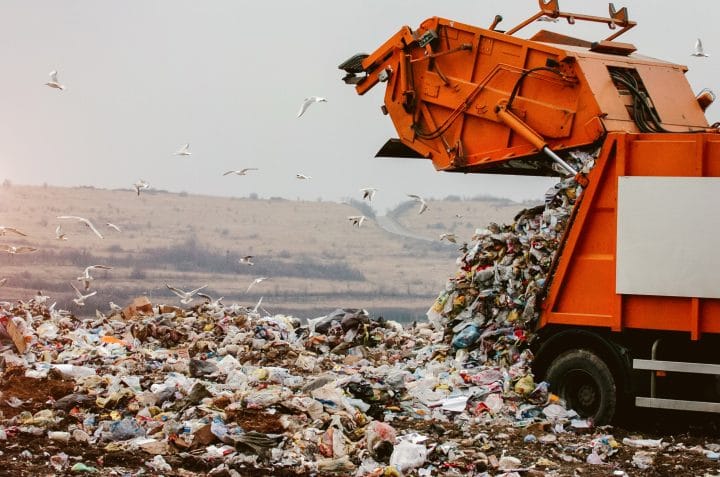In recent years, you may have observed the grim realities of waste management and how it is adversely impacting our planet. Surprisingly, waste materials can be transformed into wealth, thanks to the revolutionary world of bioenergy. This blog post offers a comprehensive overview of bioenergy and how transforming waste into wealth is not a science fiction story anymore. Harnessing the potential of this renewable energy resource can move us towards sustainable living and offer a solution to the enormous amounts of waste that human society generates.
Introduction to Bioenergy
Bioenergy stems from organic waste, strongly contributing to clean and sustainable energy production. This process is often referred to as bioenergy from rubbish. When you hear about organic waste, it refers to plant and animal-based materials that are utilised for energy production. Instead of allowing such waste to pollute the environment, societies can harness their potential to generate heat, electricity or even transportation fuels.
Bioenergy: An Untapped Treasure Trove
The potential impact of bioenergy remains largely underutilized. While these resources are seen as leftovers or waste, they hold incredible energy-generating capabilities. Imagine your daily kitchen waste fueling your car! In essence, bioenergy embraces renewable resources providing green energy solutions that could fuel entire societies logically and sustainably.
Key Bioenergy Resources
You might be wondering about the resources used for bioenergy production. Typically, wood scraps, manure, crop residues, food scraps and other forms of organic waste are core to this process. These resources are abundant. Furthermore, their use in bioenergy production leads to a circular economy; nothing goes wasted.
The Process: Making Energy from Waste
The conversion process may look complex initially. Organisms break down waste under certain conditions (oxygen absence) to generate biogas. This process, also known as anaerobic digestion, is not new. But technological advancements today enable us to harness this process better, maximizing the energy output efficiently.
Exploring Bioenergy Applications
The applications of bioenergy are diverse. From heating homes to powering vehicles, the possibilities are mind-boggling. Due to its sustainable nature, industries worldwide are slowly beginning to incorporate this renewable energy source into their operations and help fuel their transition towards greener alternatives.
The Economic Benefit of Bioenergy
Your will benefit greatly from a financial standpoint. Bioenergy opens up scope for economic growth by allowing communities to self-sustain rather than relying on costly importation of fossil fuels. This approach can create jobs and benefit local economies immensely, giving you another reason to consider the use of bioenergy.
Effect on the Environment
Environmentally, bioenergy has numerous advantages to offer. It reduces emissions, promotes sustainable living and minimizes the need for landfill sites. By transforming waste into a wealth of energy, you are not just producing power efficiently but also caring for the environment at the same time.
Impact on Sustainability
As you can recognize by now, bioenergy contributes significantly to sustainability. By making full use of what we often consider waste, we reduce our dependence on non-renewable resources. Plus, contributing to an efficient waste management system assists in realizing the bigger goal of a balanced natural cycle that reduces resource depletion.
Challenges in Bioenergy Production
As with any technology, there are challenges. Some critics point at the complexities tied with logistic issues of organic waste collection and its treatment process. There could be concerns related to initial setup costs and widespread scalability. The energy sector stakeholders are continuously researching to address these and make bioenergy more feasible and accessible.
The Path to Greater Bioenergy Uptake
Greater uptake in bioenergy would demand policy support and adequate infrastructure. It is crucial to increase awareness of the benefits of bioenergy and promote a collective mindset favouring renewable resources. As a society that values sustainability, we need to realize the potential of waste as a viable resource and work towards adopting it full-scale.
Innovation In Bioenergy
There has been significant progress in technologies enabling the efficient extraction and utilisation of bioenergy. Invention in anaerobic scrubbers, for instance, has offered solutions for effective methane capture. Such innovative steps make the technology more affordable, sustainable, and adaptable across multiple sectors.
The Future of Bioenergy
The future of Bioenergy holds immense promise. Despite challenges, it is becoming increasingly clear that waste-to-wealth is not only feasible but also necessary. By continuing research and promoting public awareness, societies can channel an evolution leading to a future where bioenergy plays a significant role in power generation.
Final Words
Transforming waste into wealth or the revolution of bioenergy is much more than an exciting opportunity. It is a necessity for planet earth in its struggle against environmental degradation and resource depletion. As you complete this post, take some time to further explore the numerous possibilities that come with embracing bioenergy in your everyday life.




